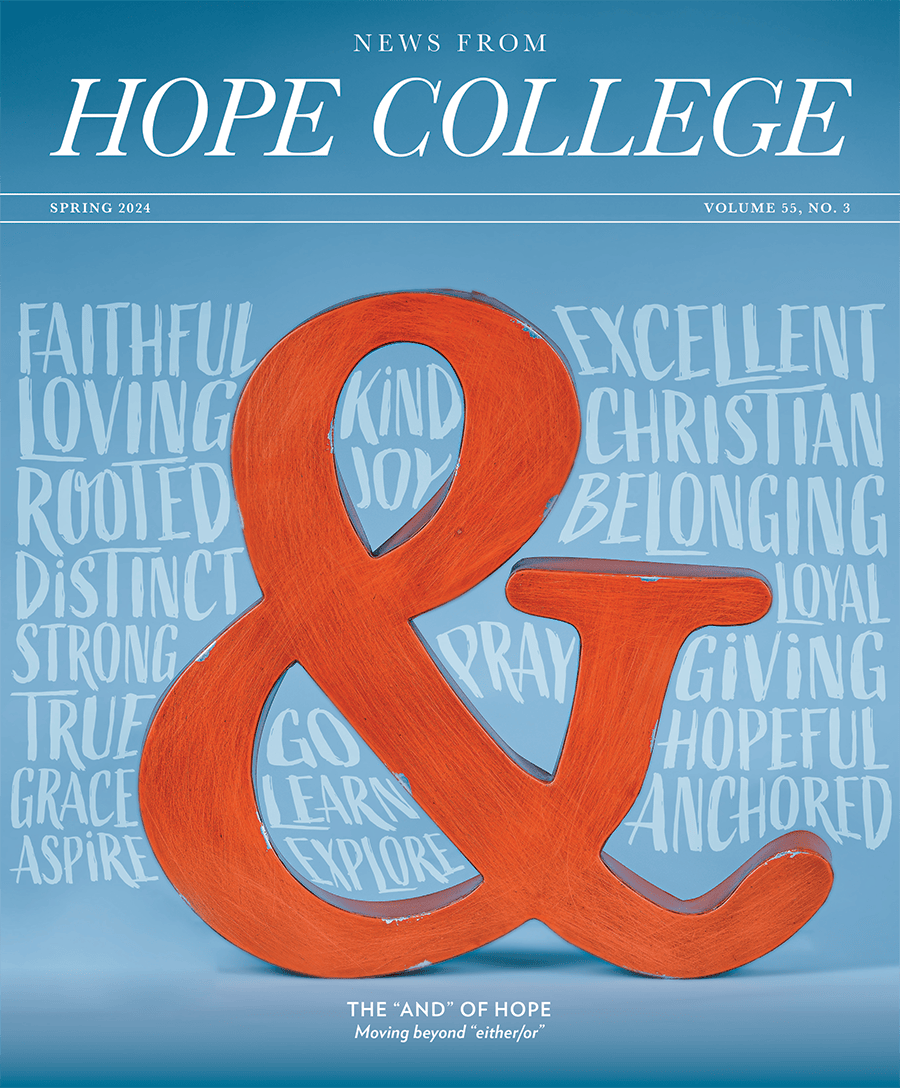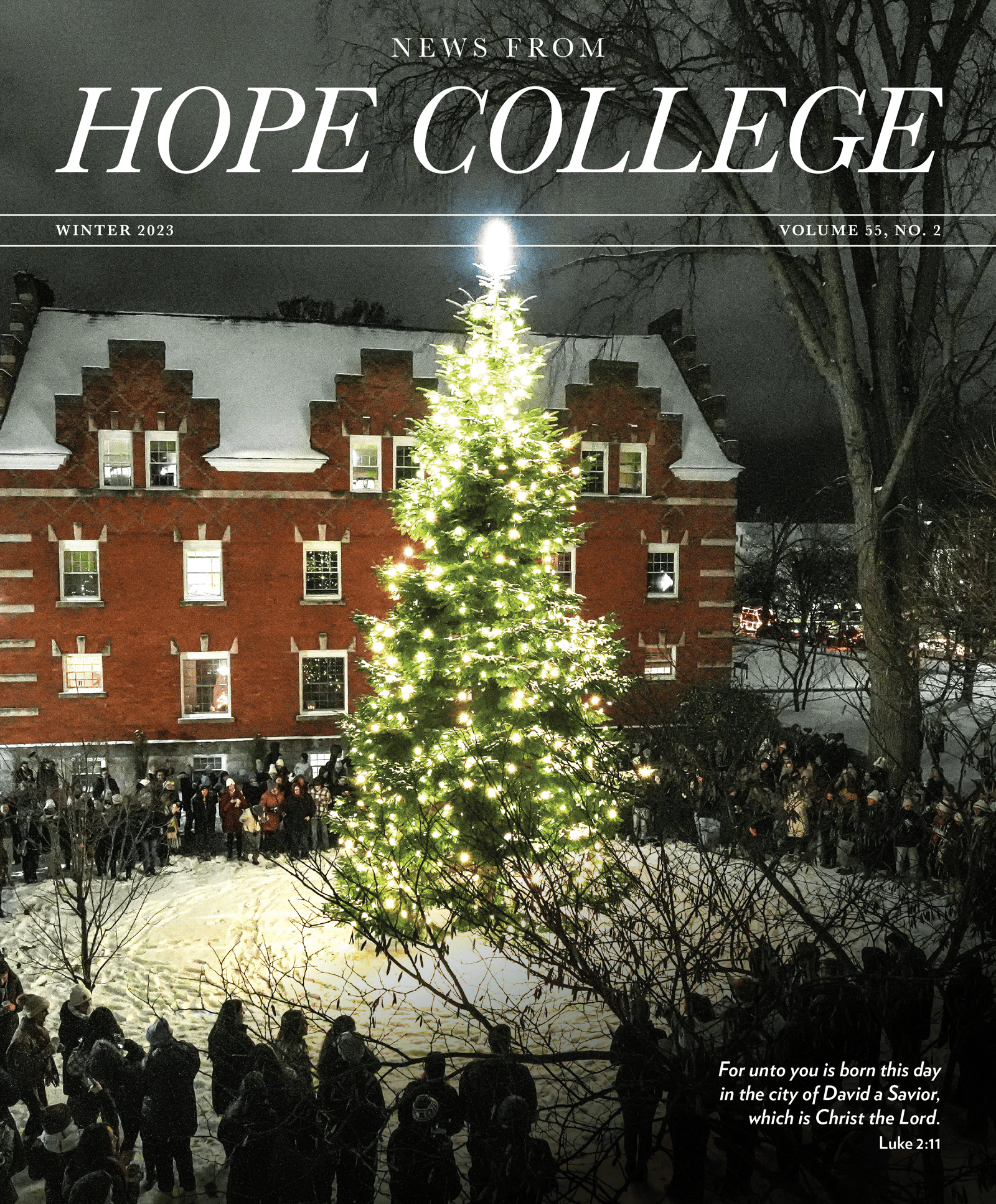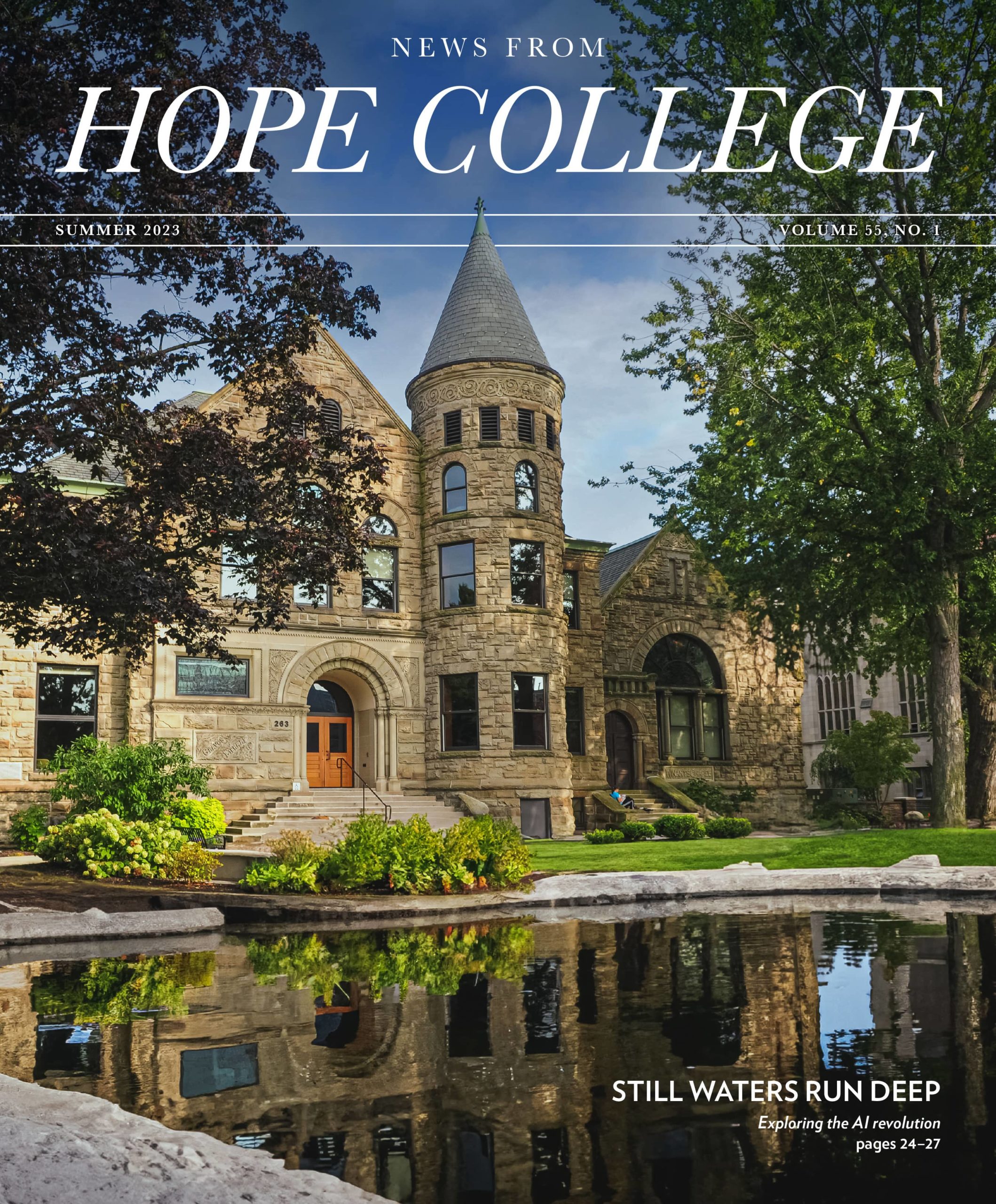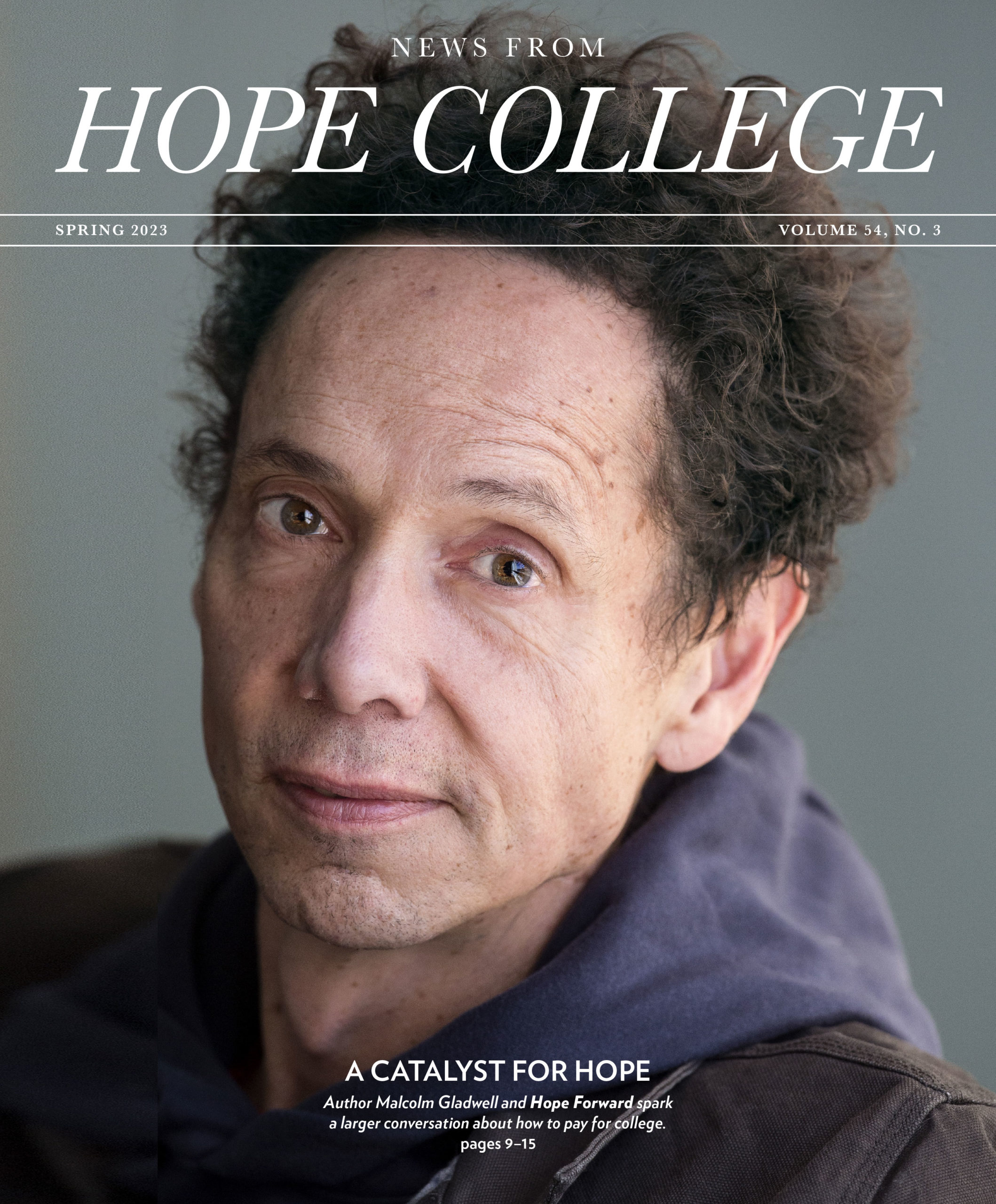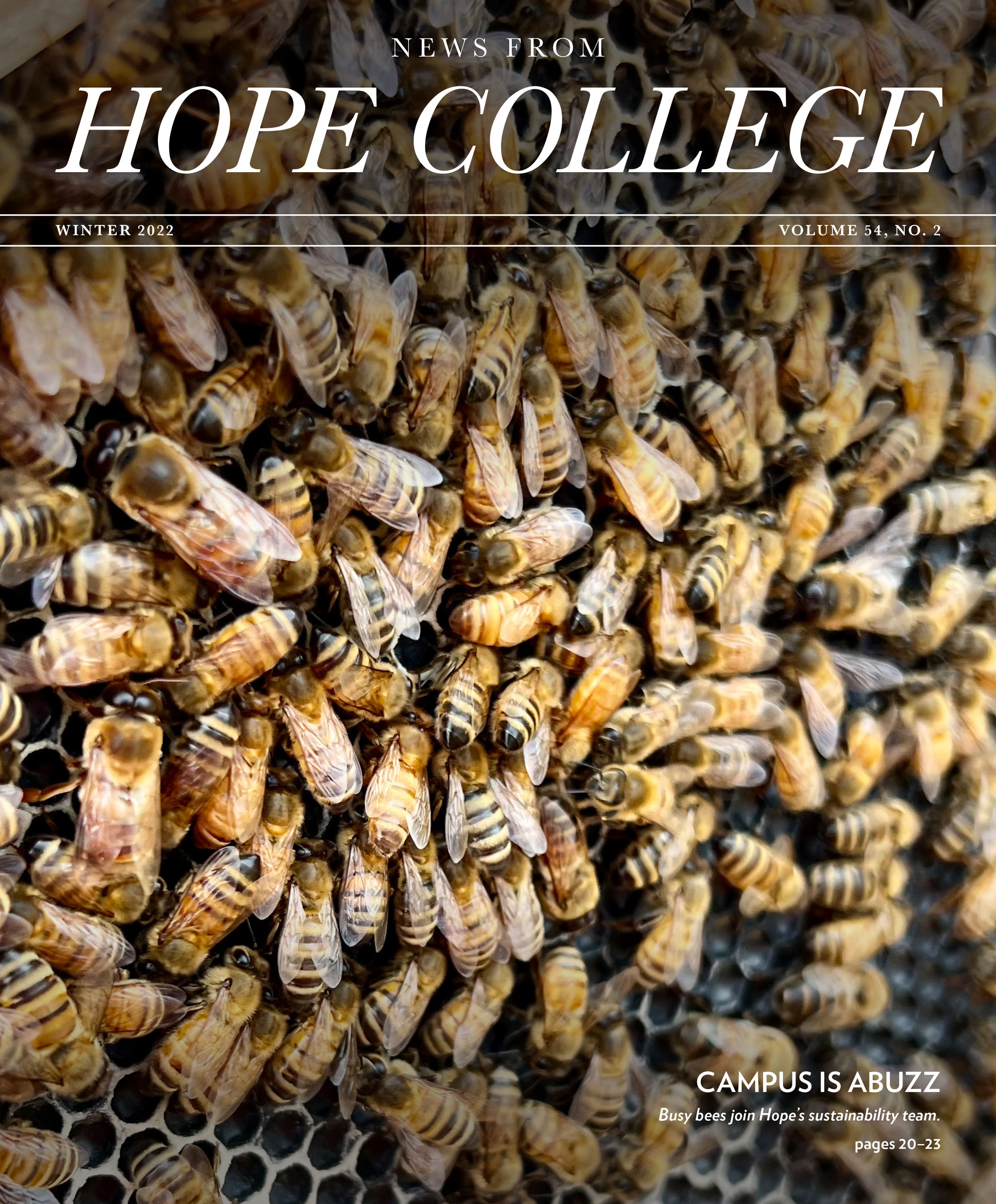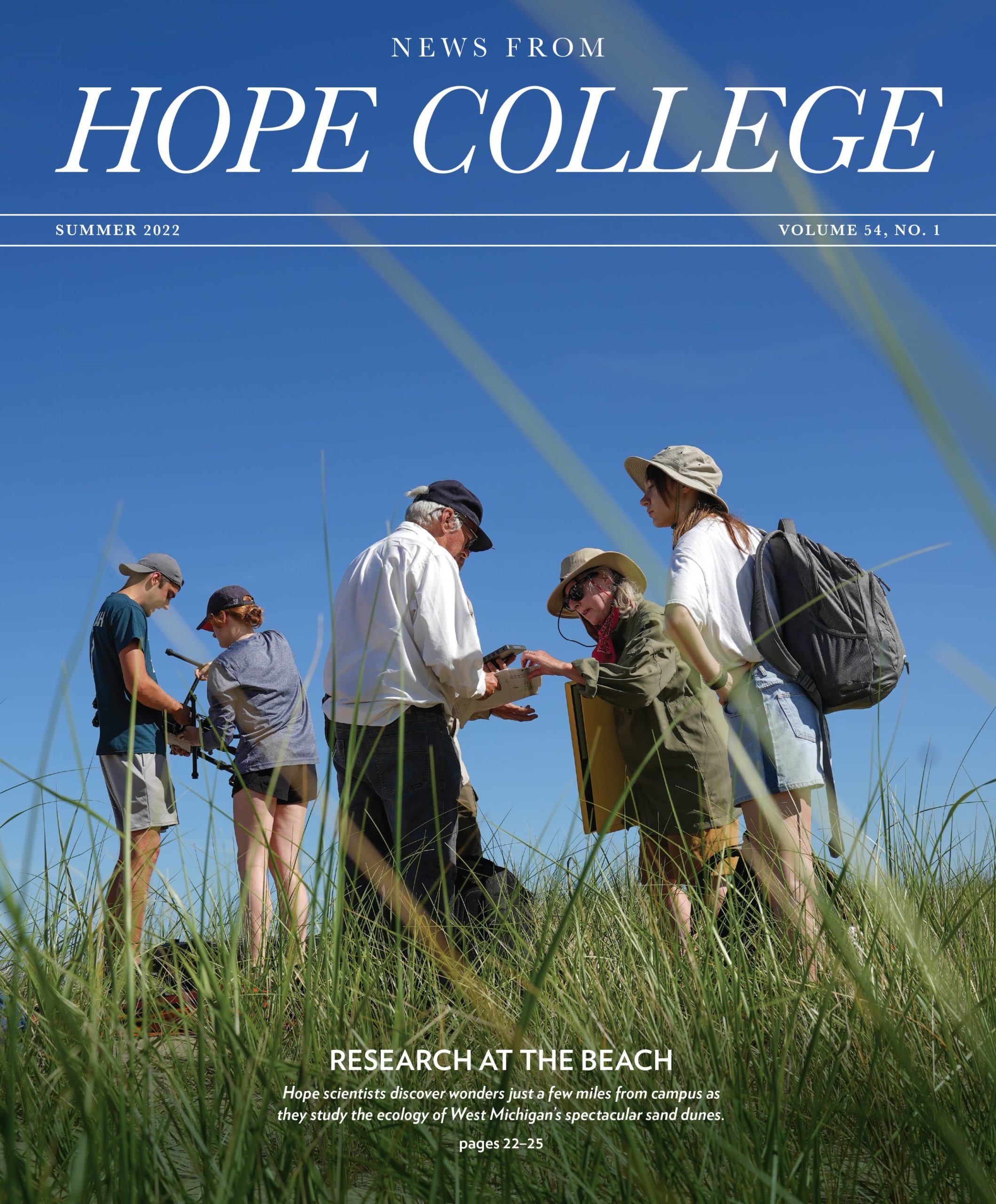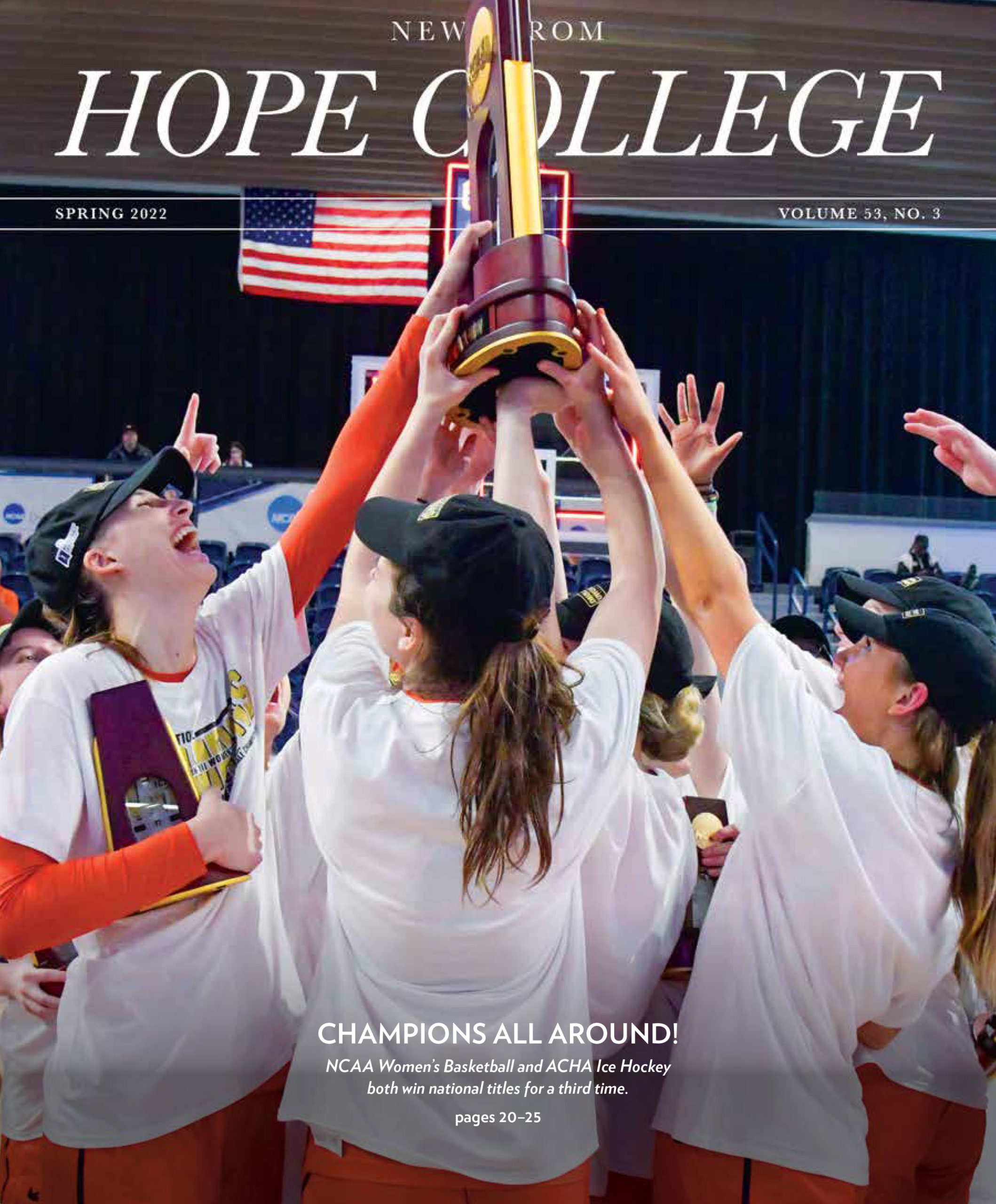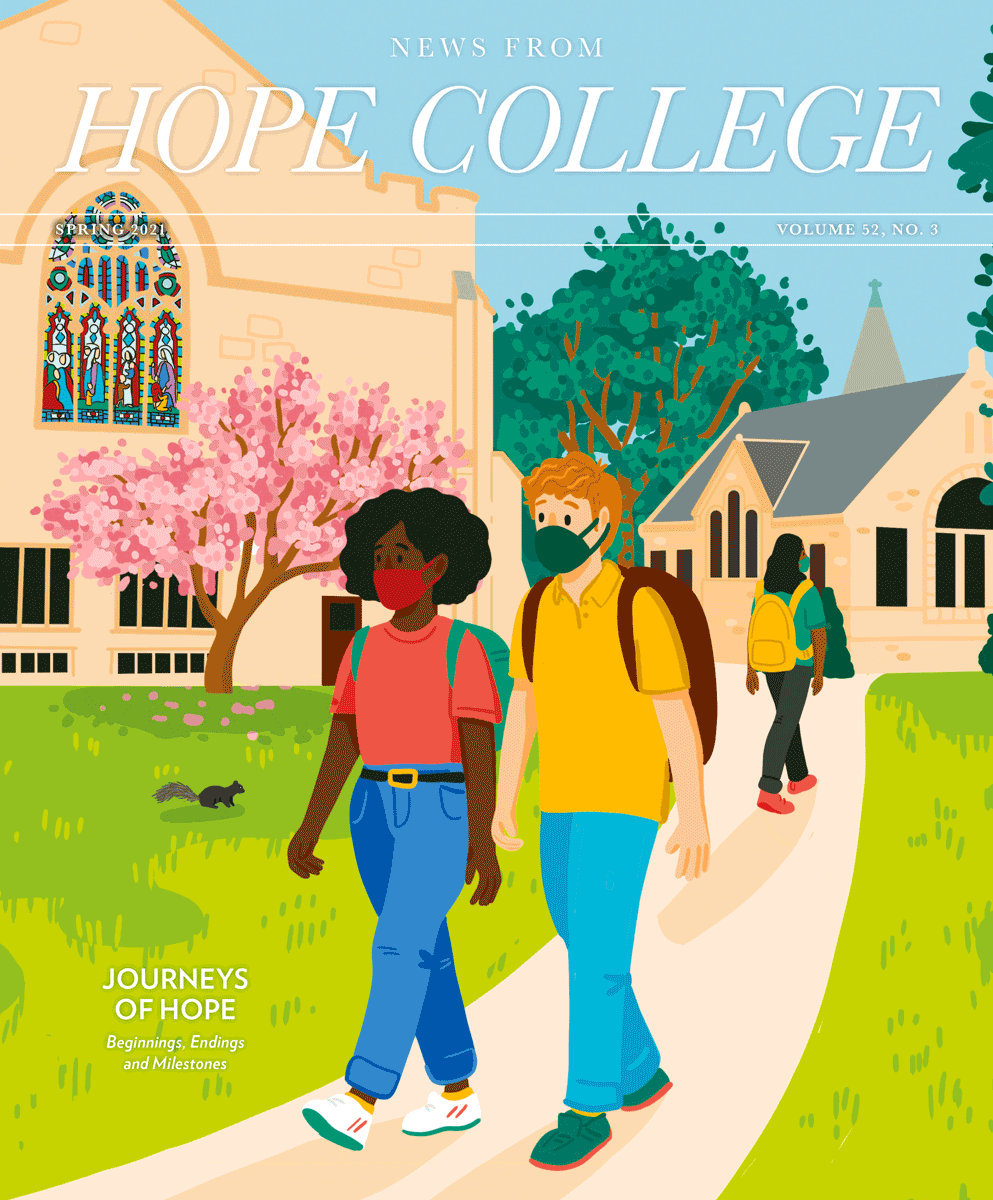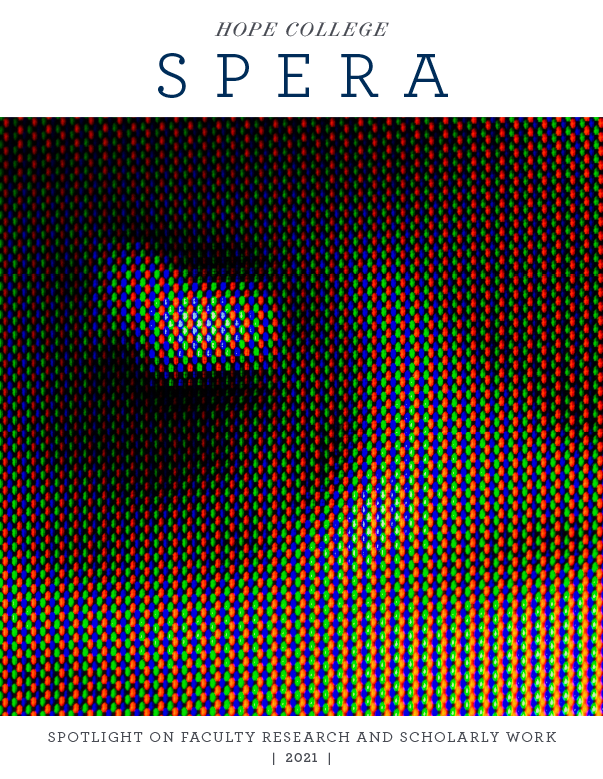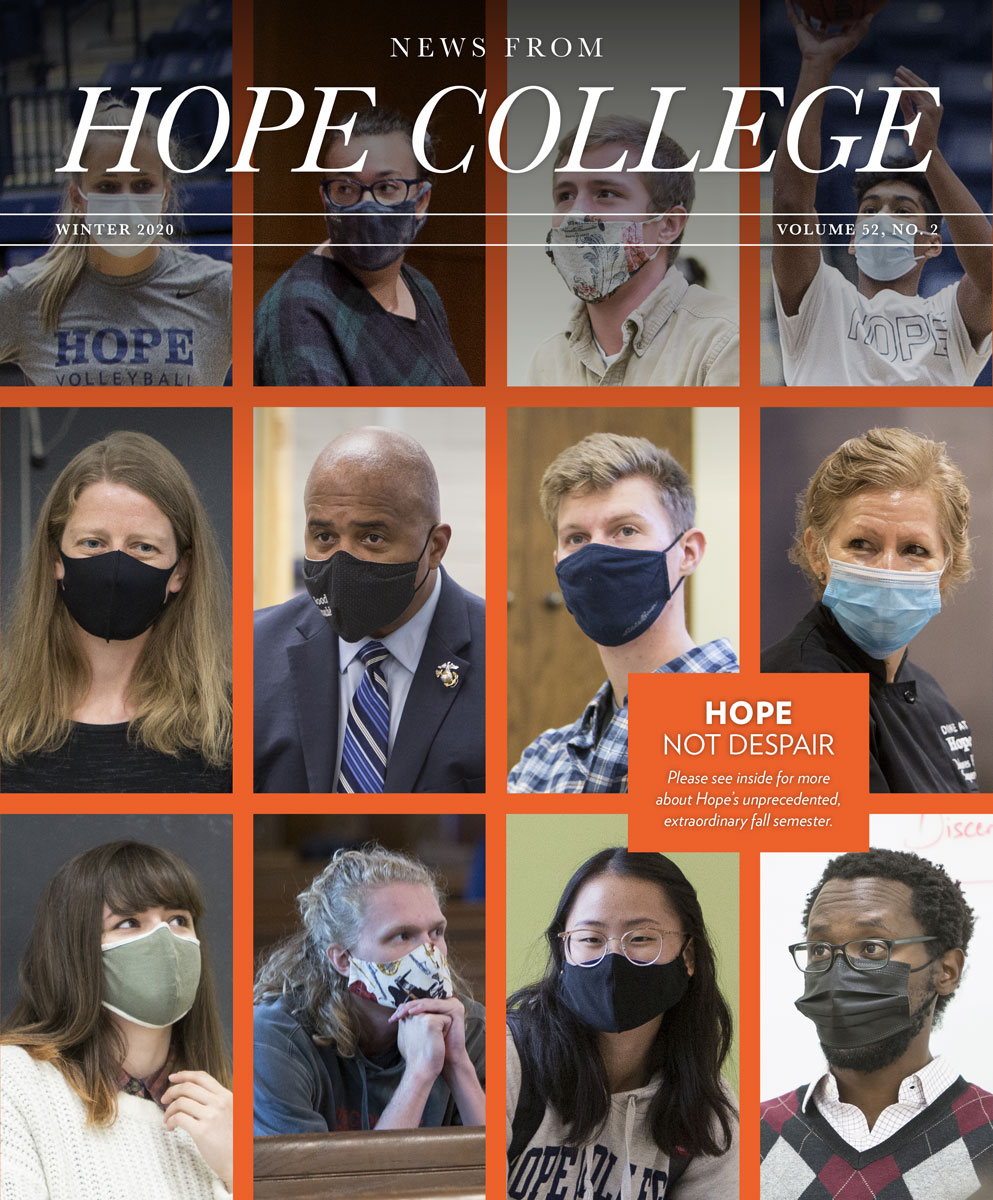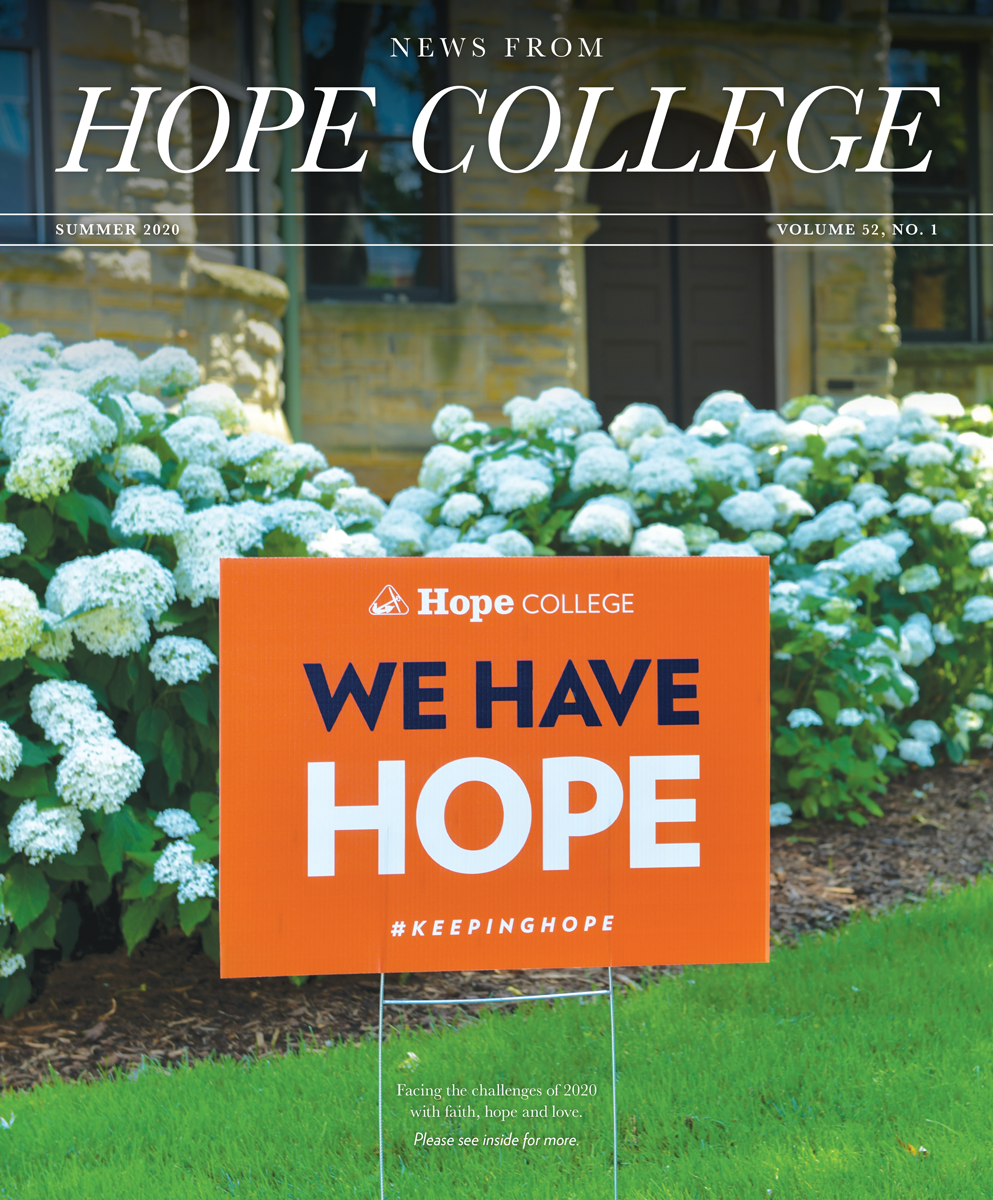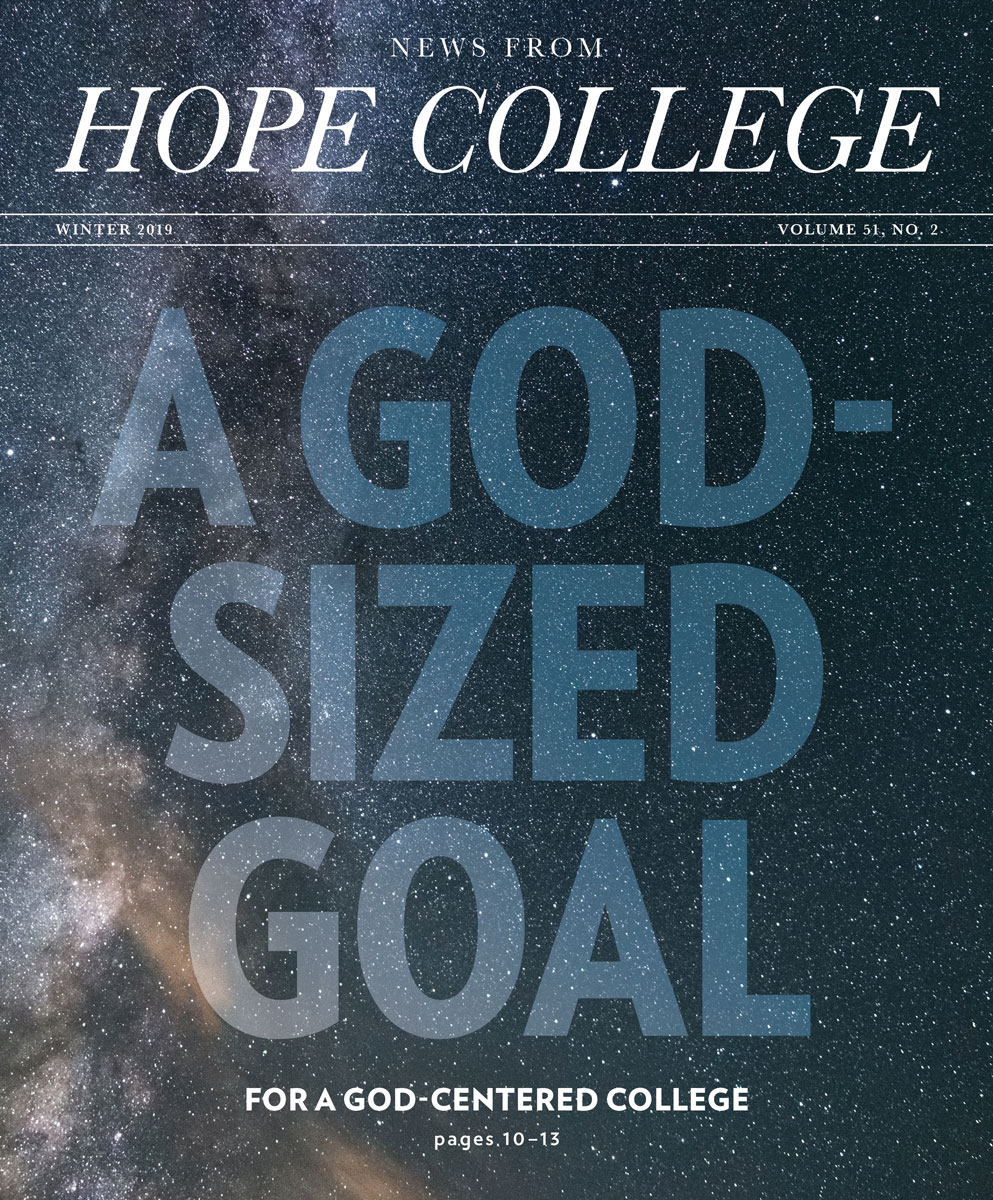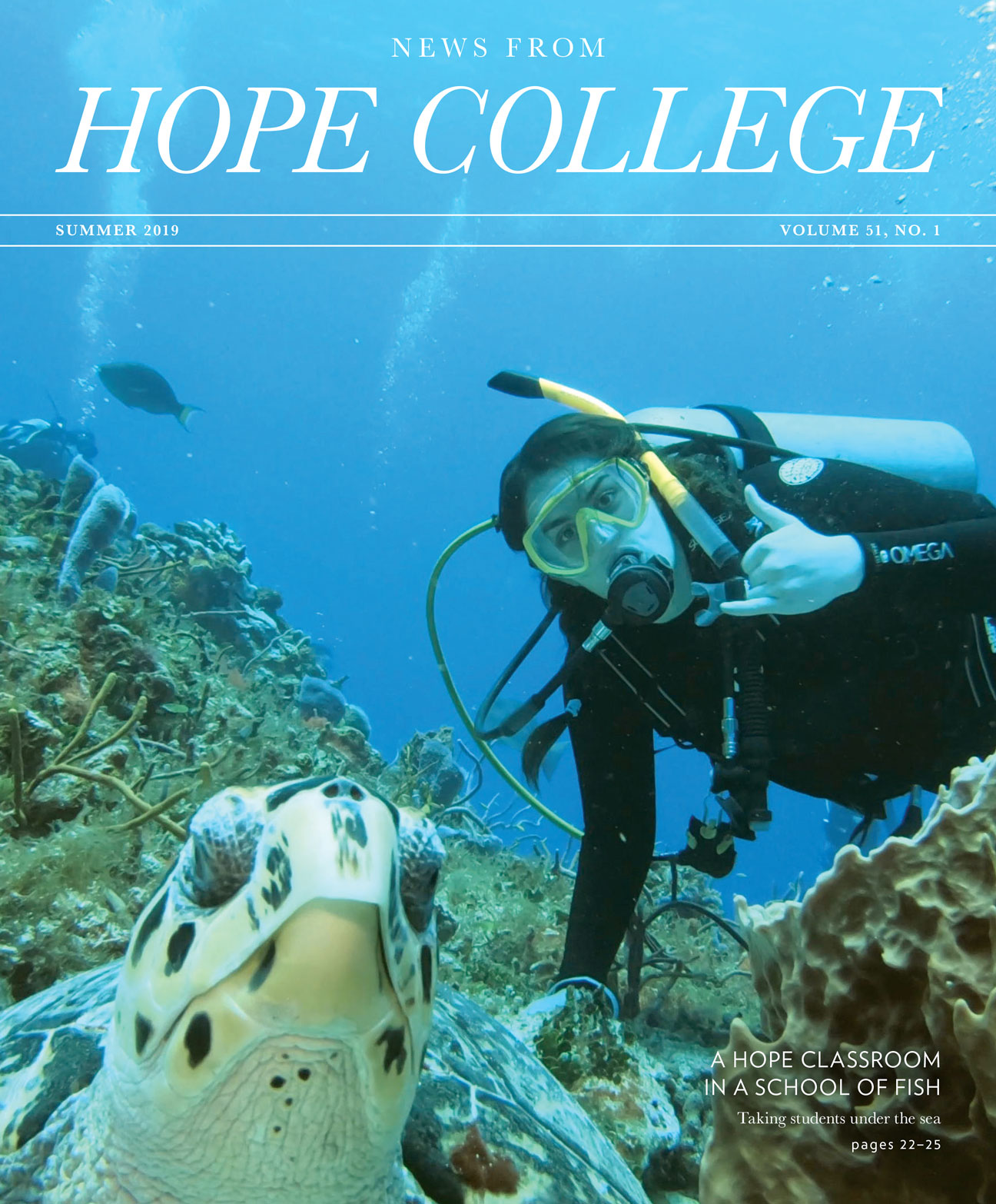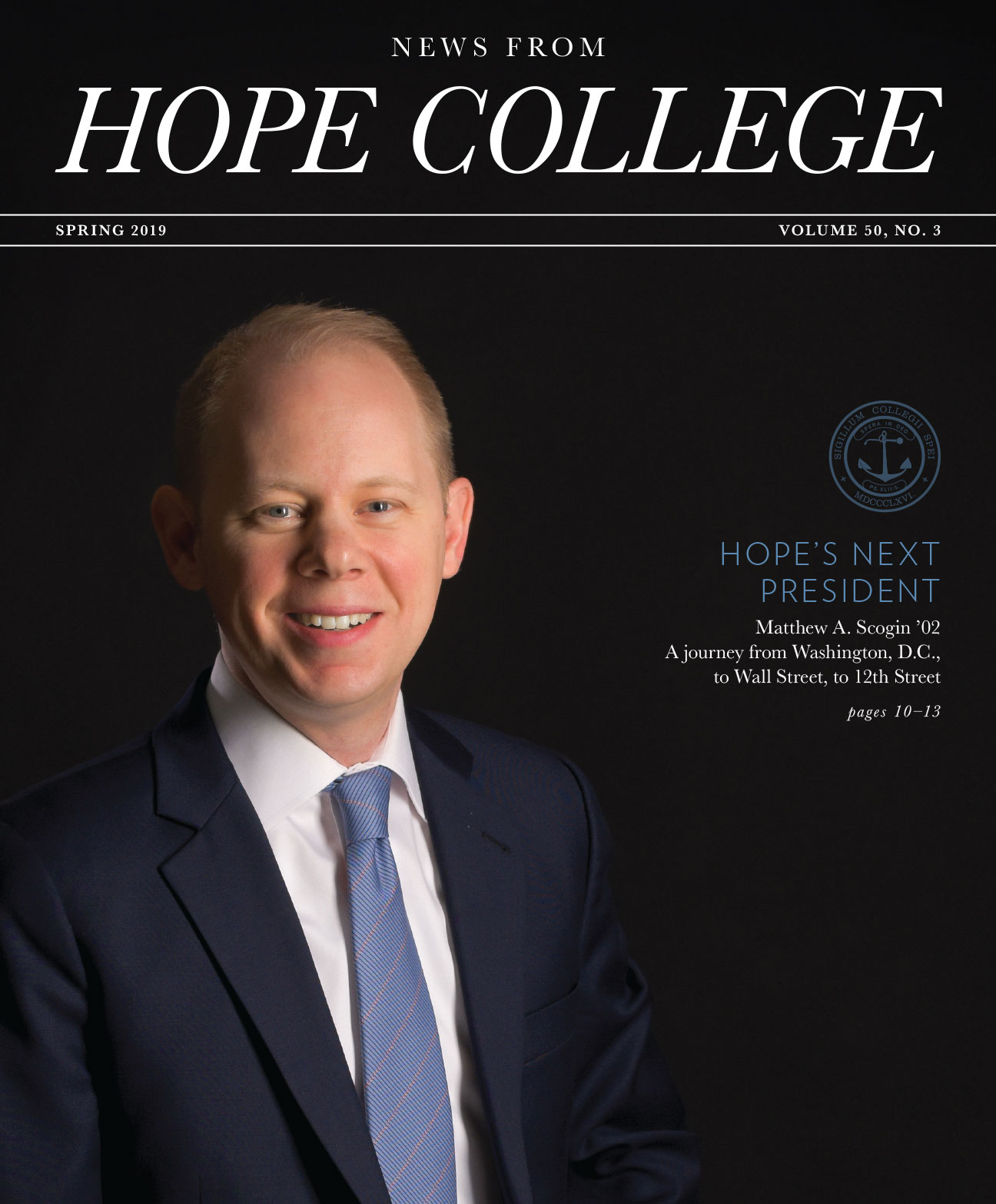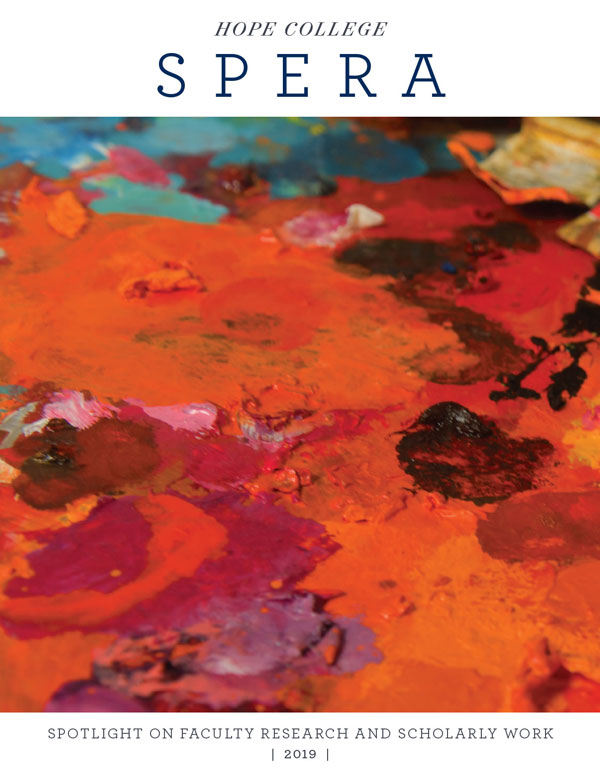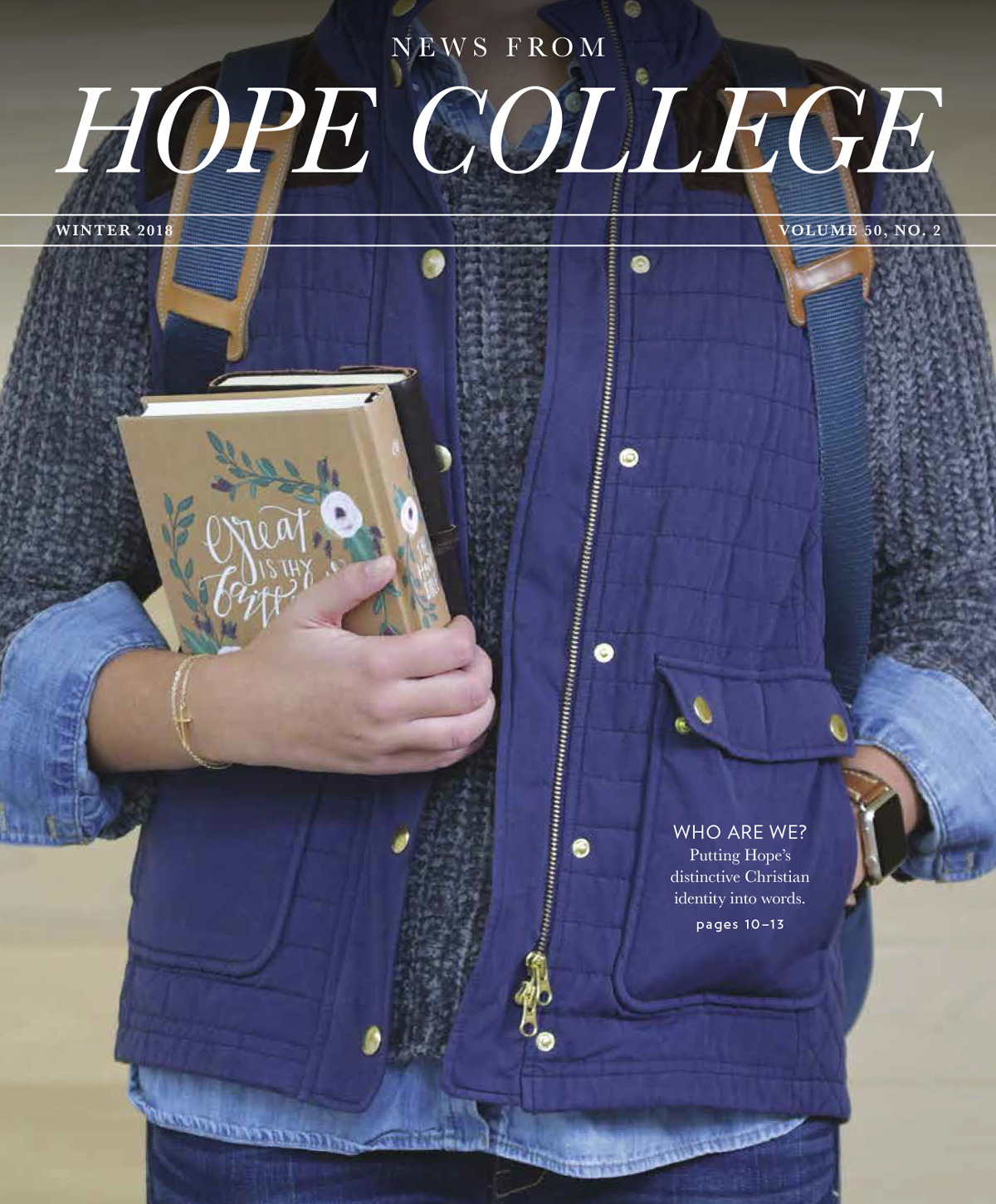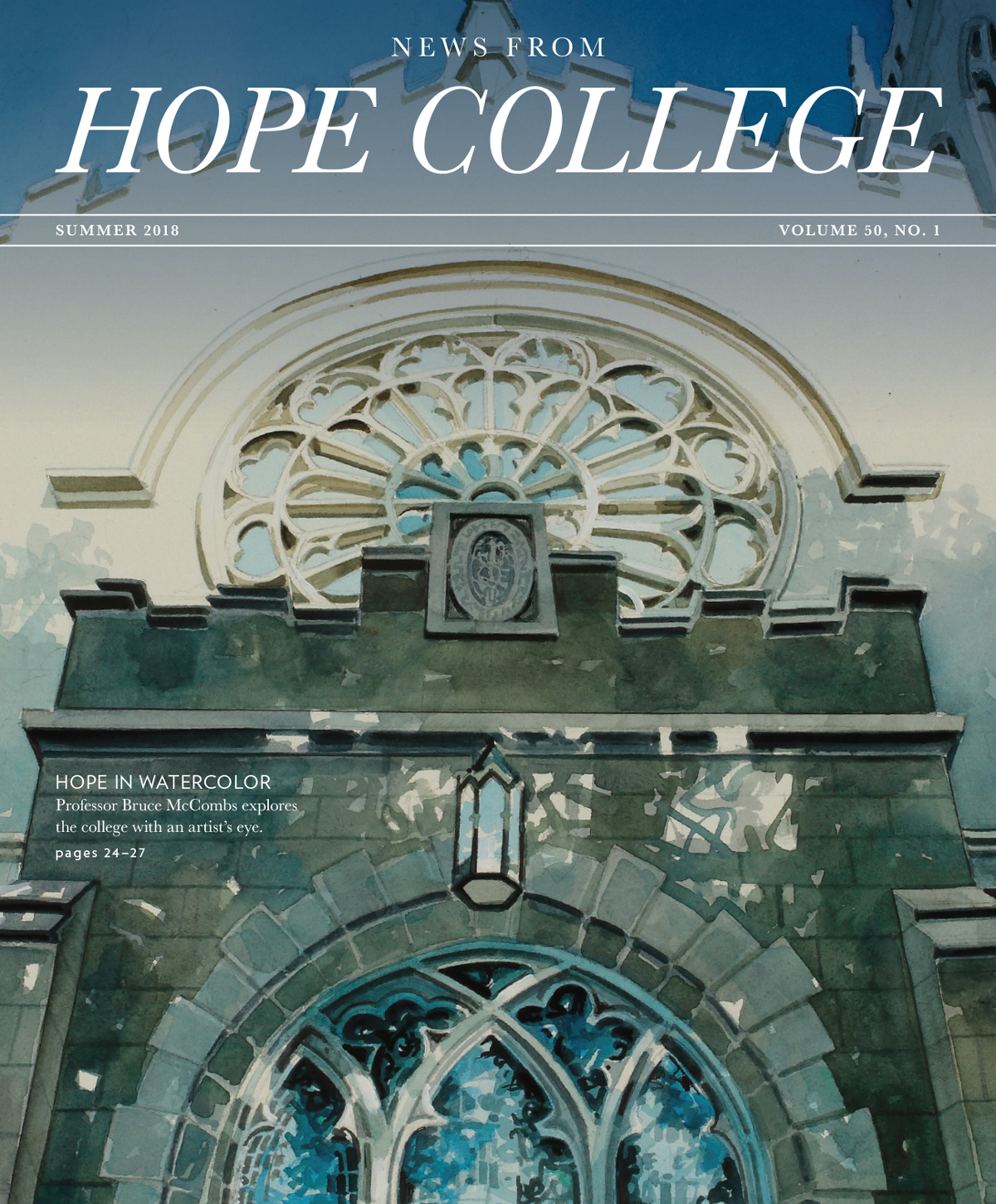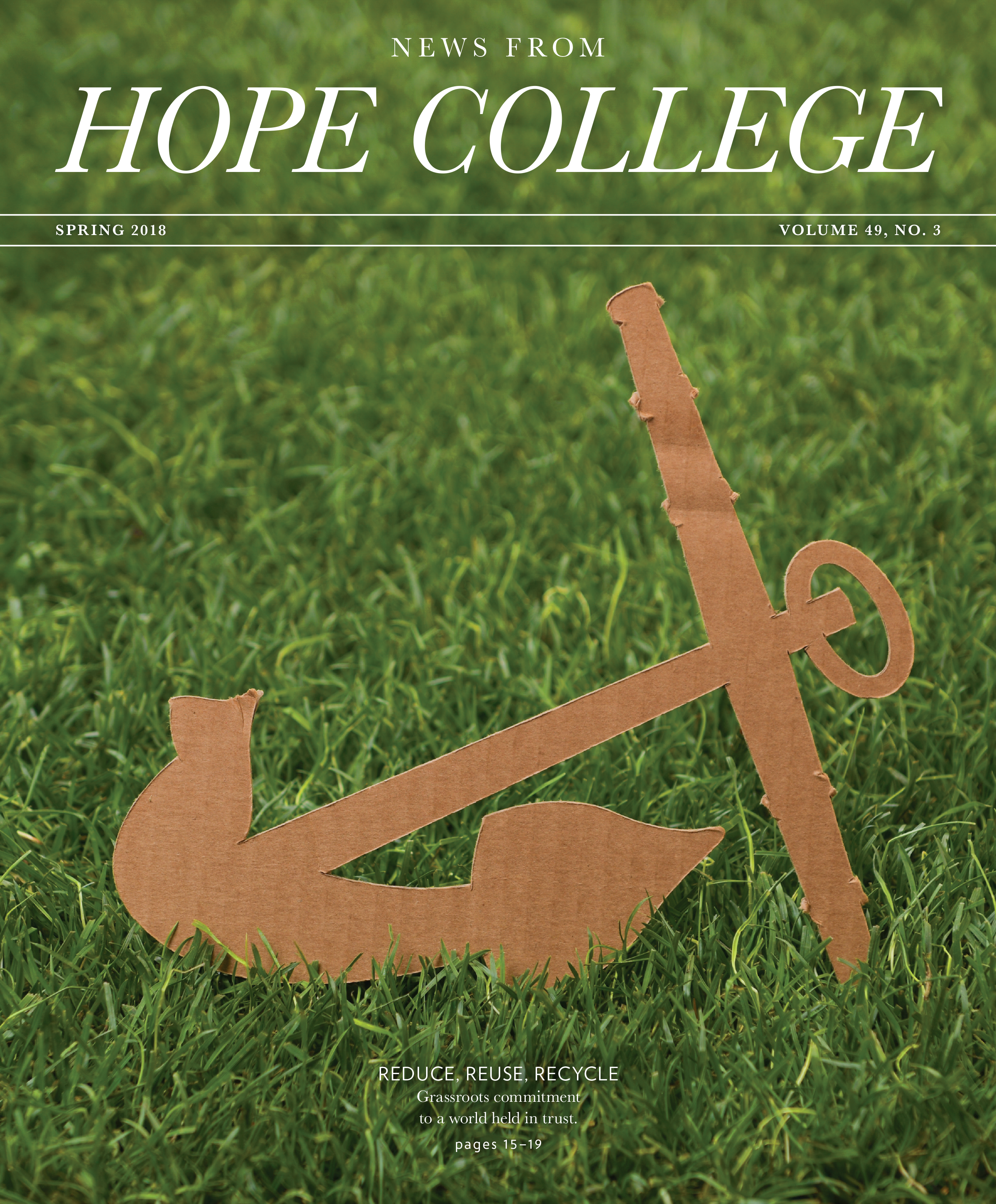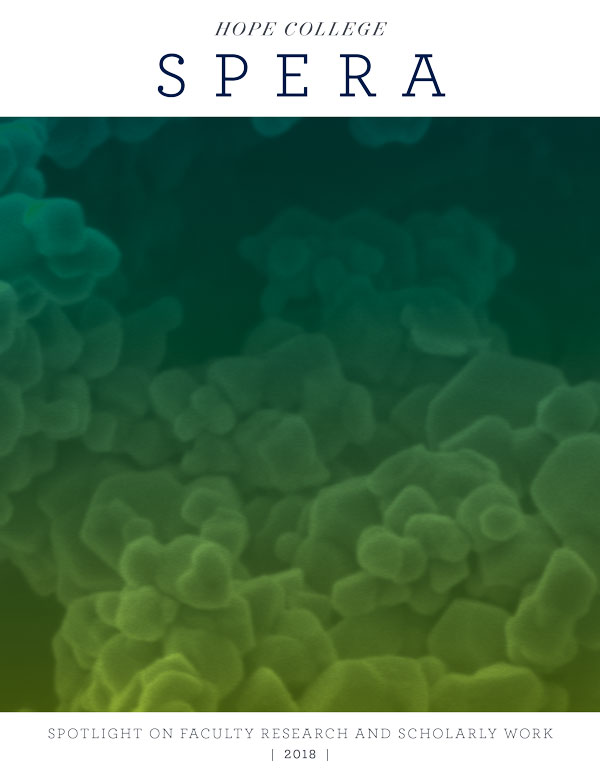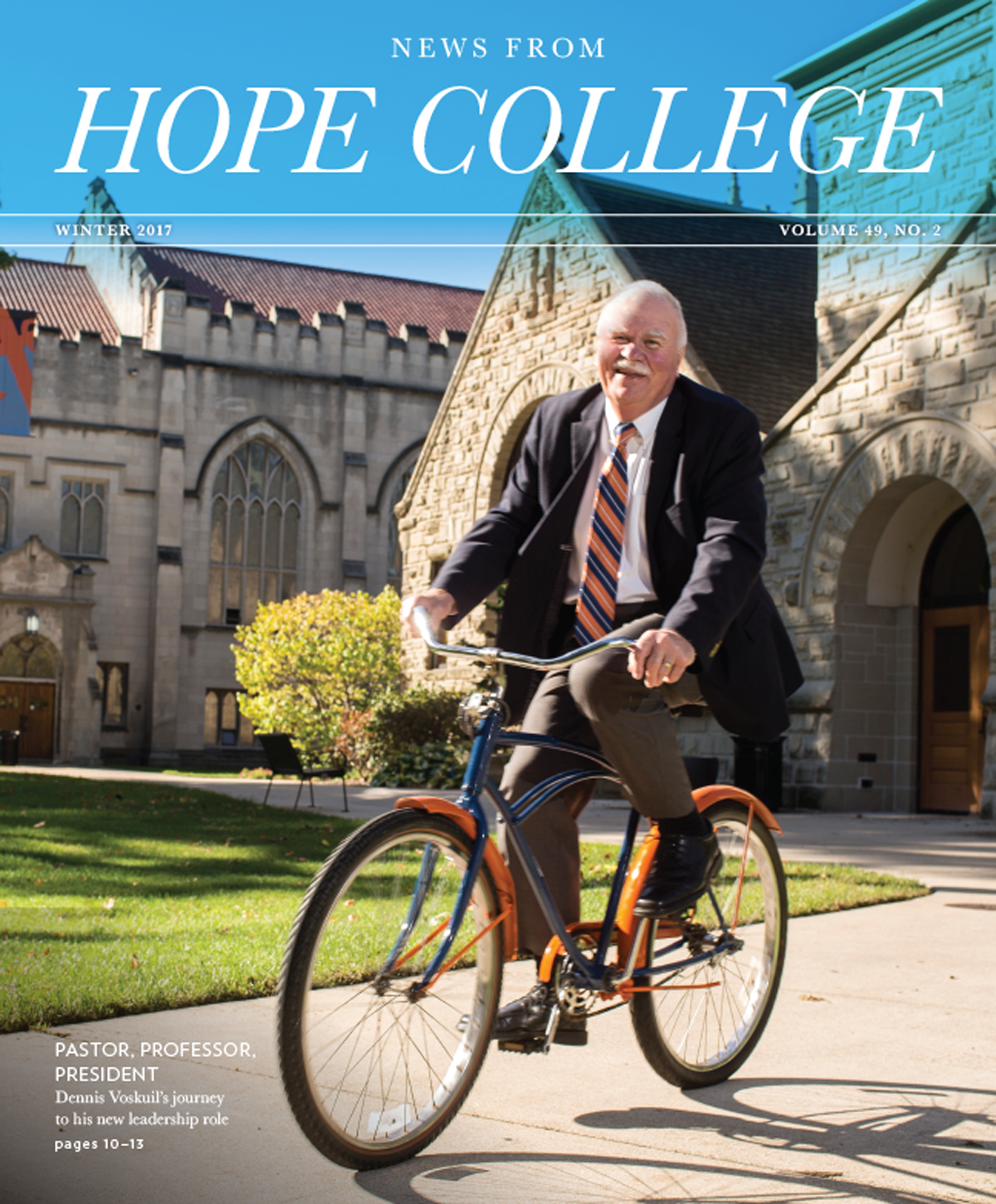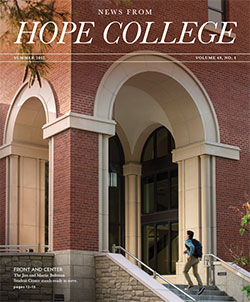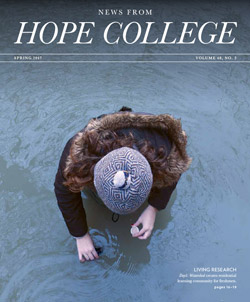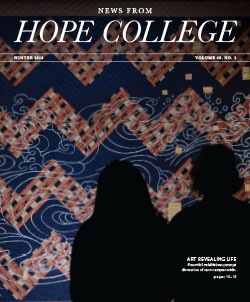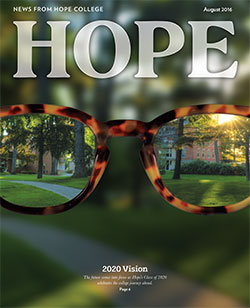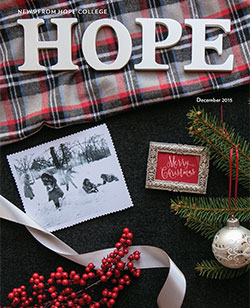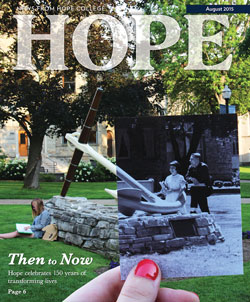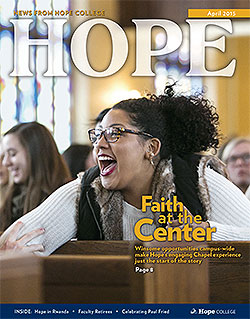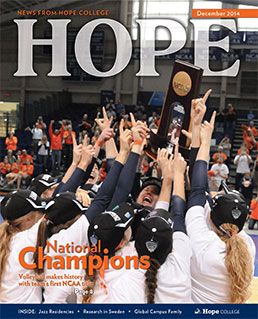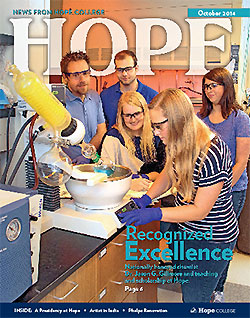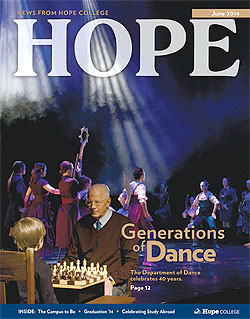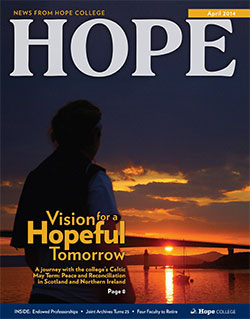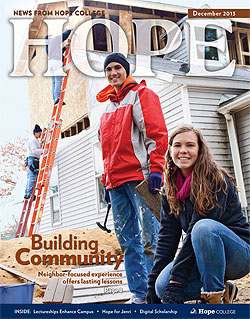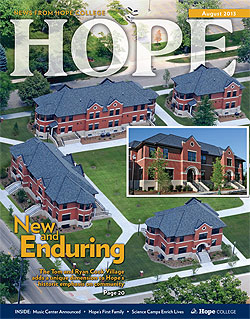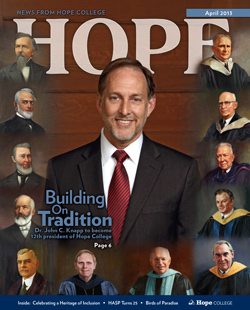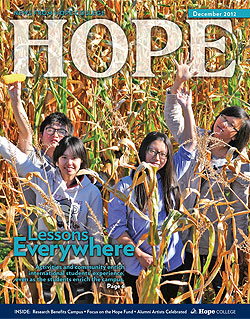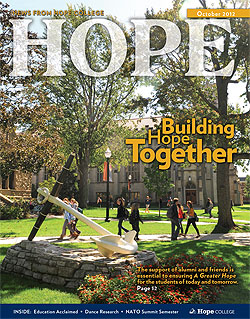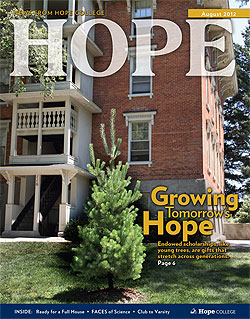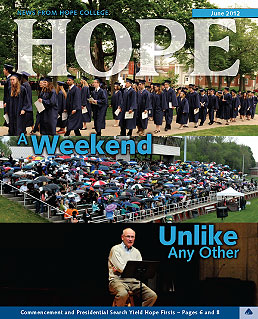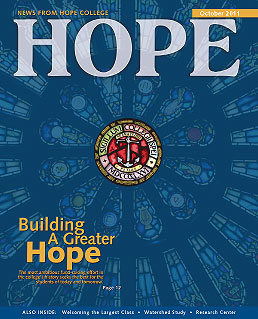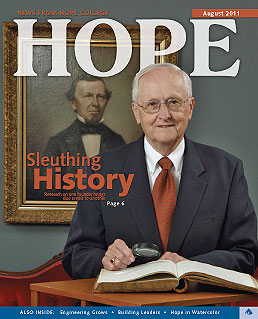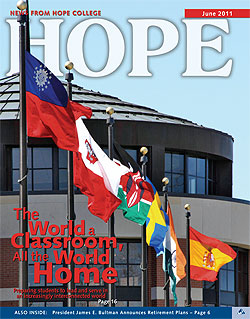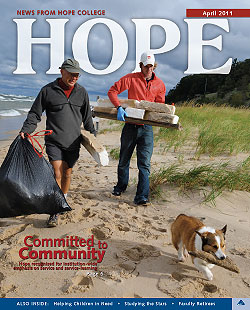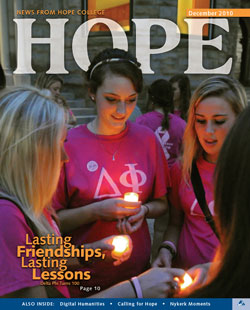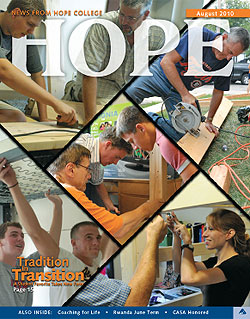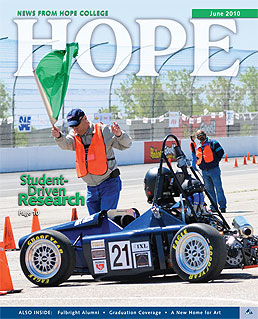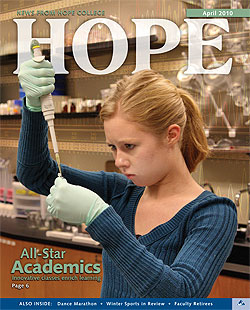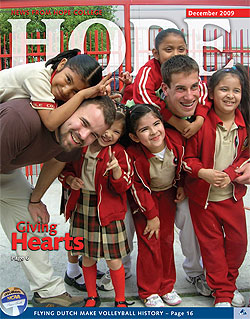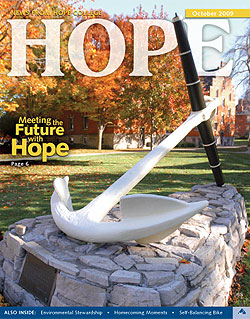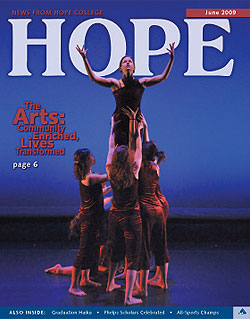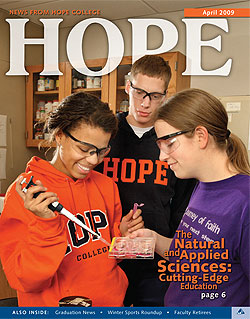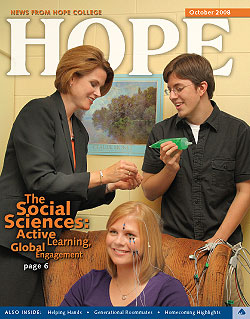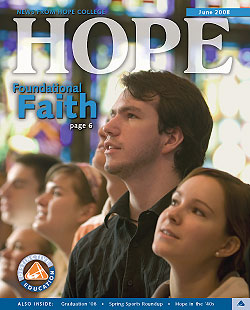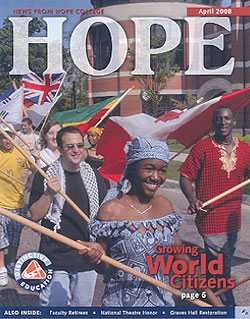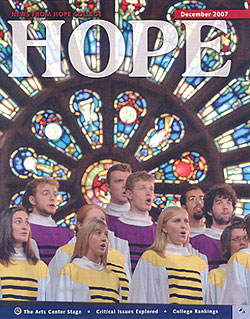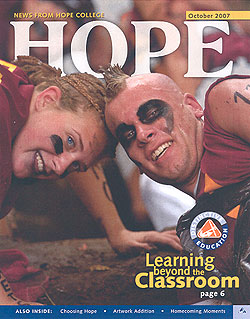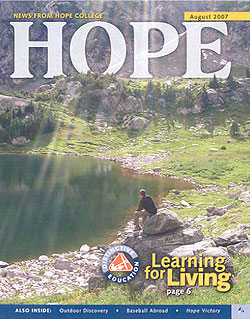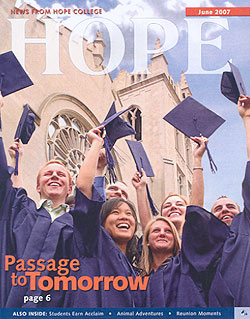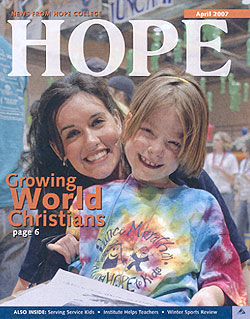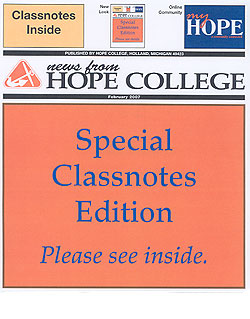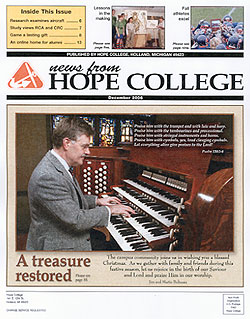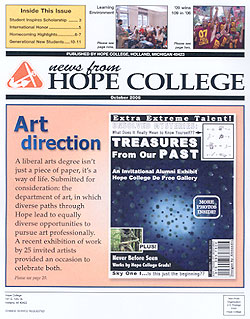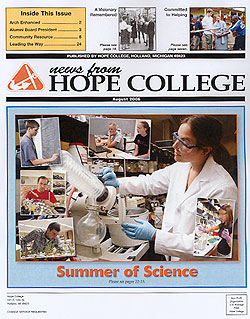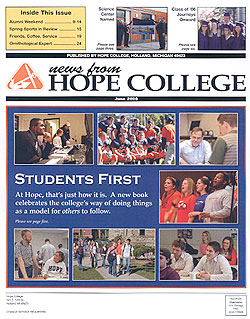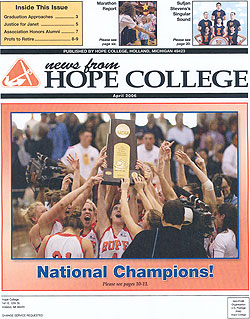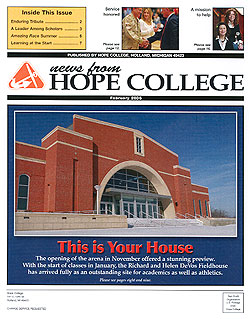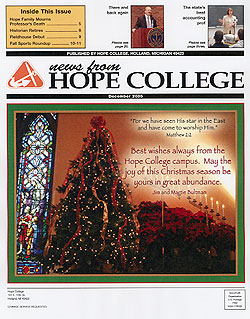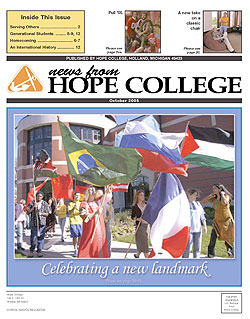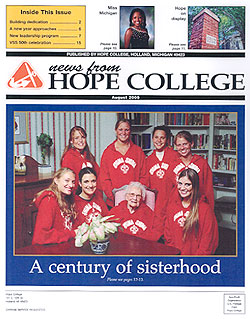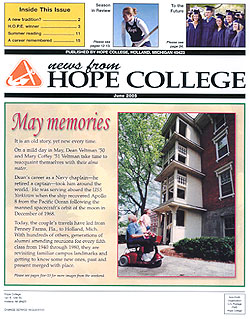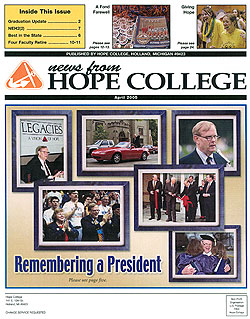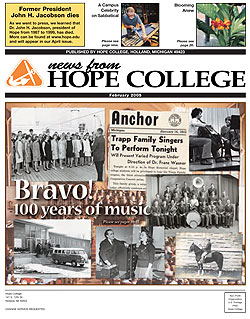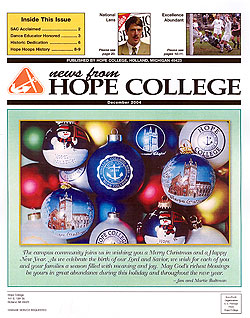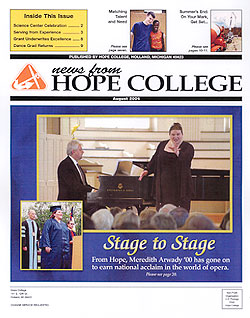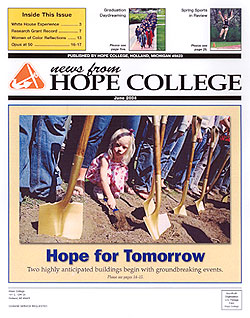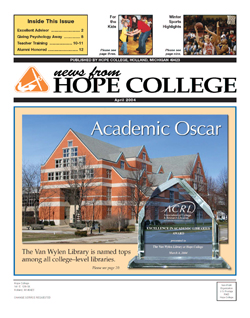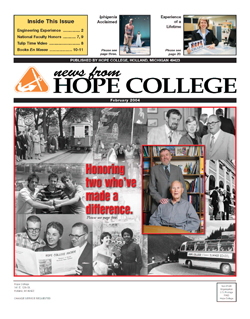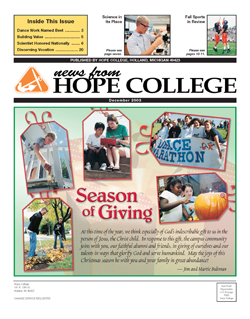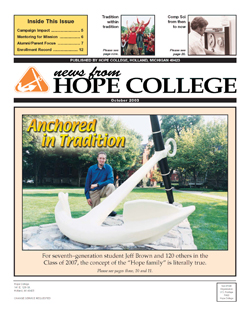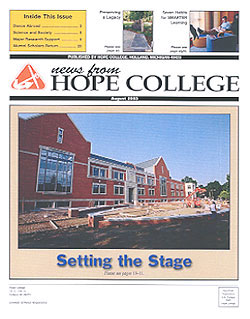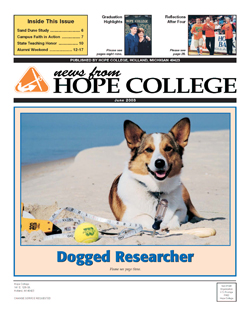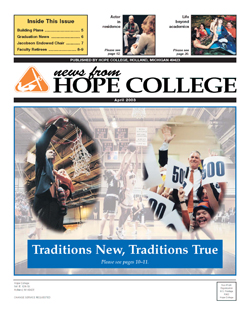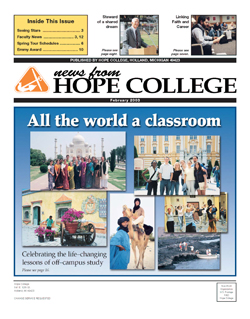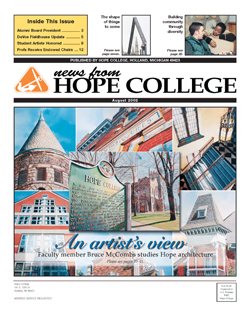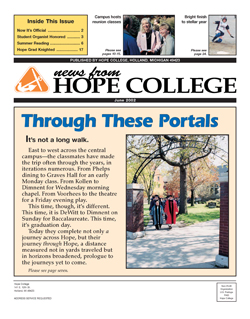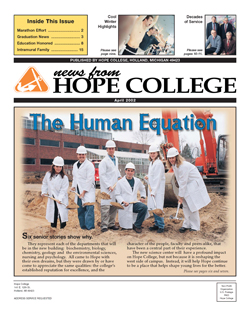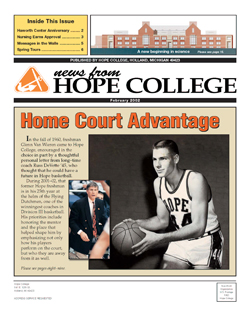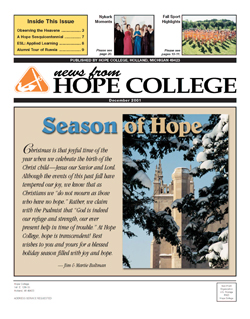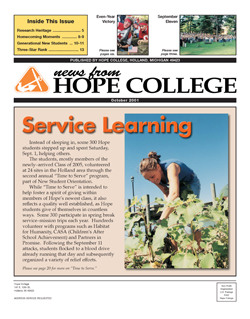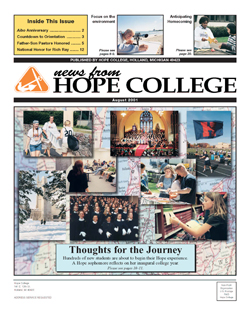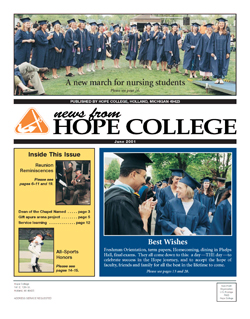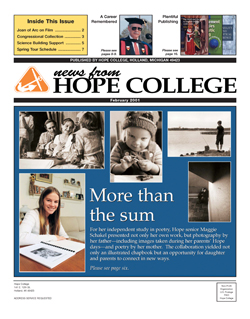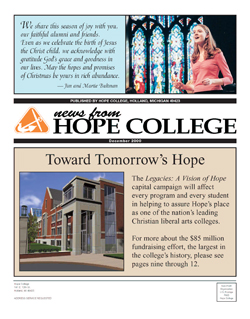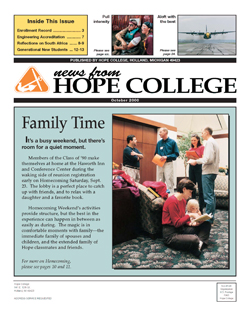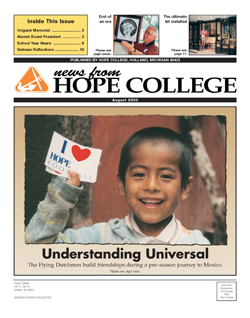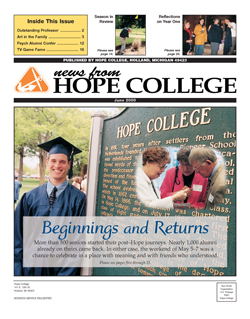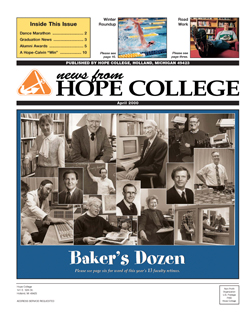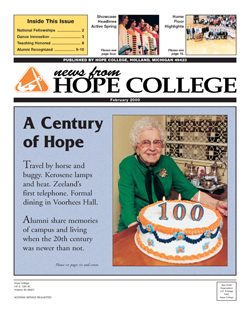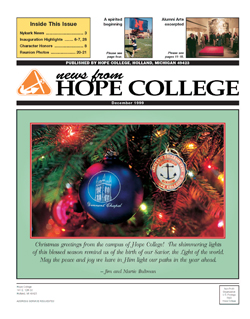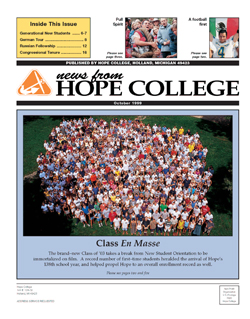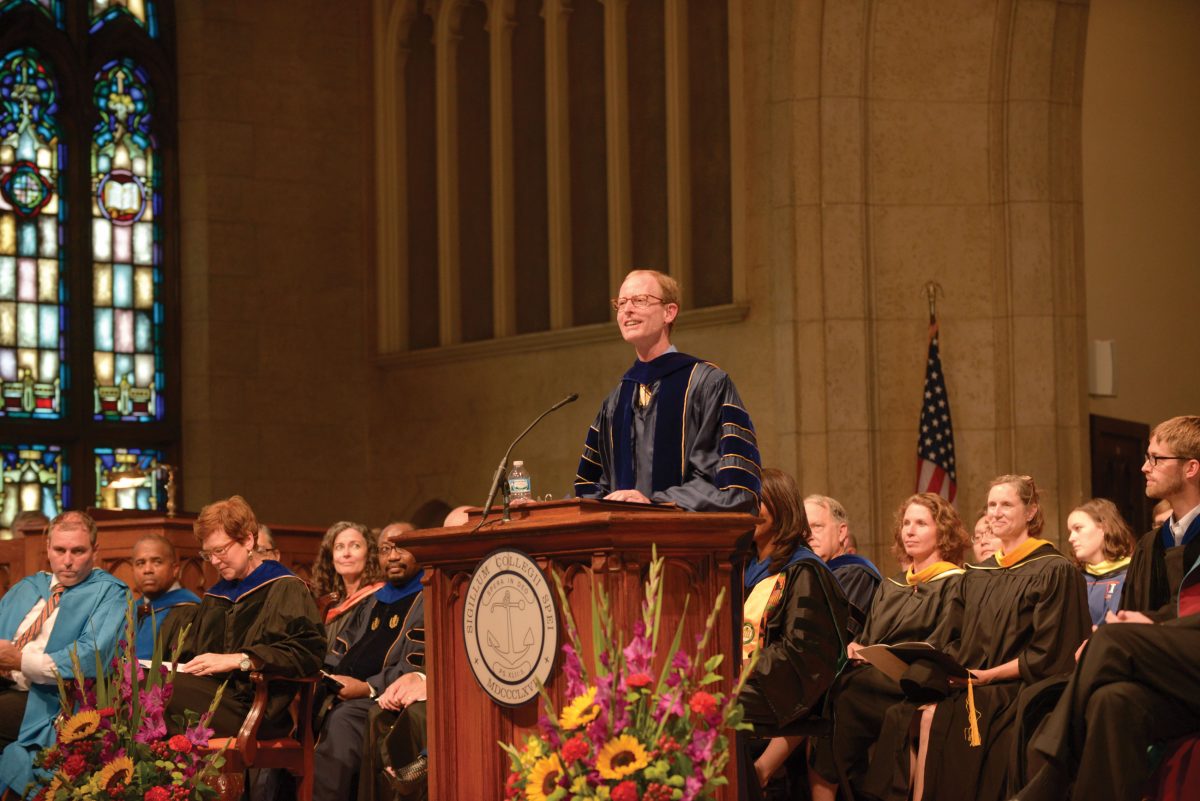Quote, Unquote: Convocation
Quote, unquote is an eclectic sampling of things said at and about Hope College.
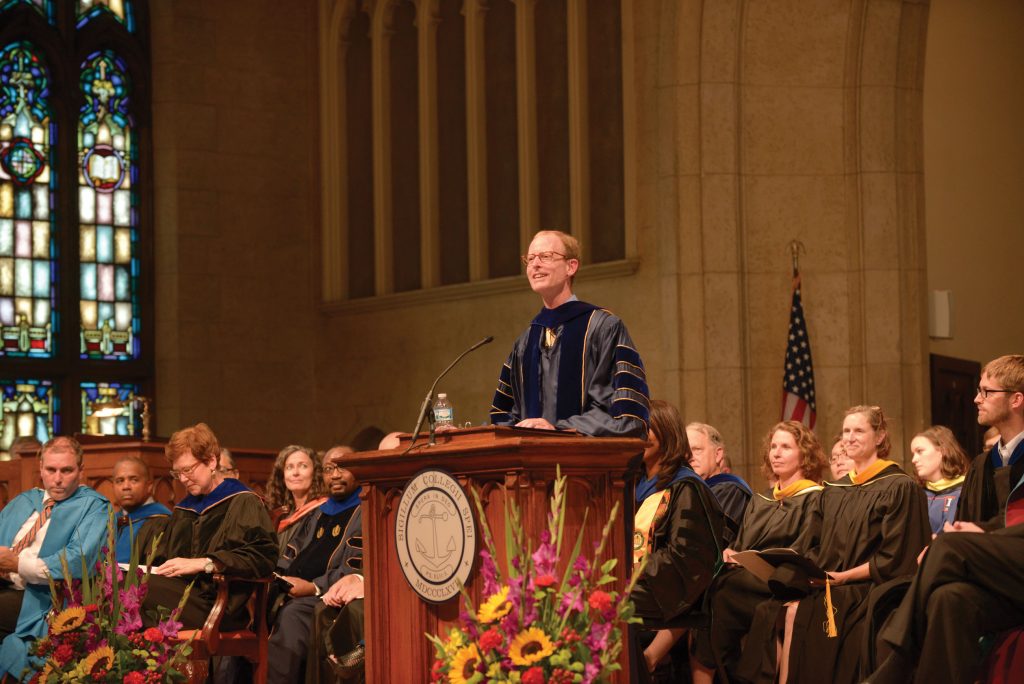
As a scholar whose specialties include the history of the English language, Hope College’s Opening Convocation speaker Dr. Curtis Gruenler found his theme in the name of the occasion itself as he addressed the members of Hope’s incoming Class of 2020 in Dimnent Memorial Chapel on Sunday, Aug. 28.
“The first part of ‘convocation,’ con-, is a prefix meaning ‘together’ or ‘with.’ You have been called together here,” said Gruenler, who is a professor of English as well as director of general education at Hope. “But beyond that, I want to suggest that vocation, finding and living into your callings in life, happens through con-vocation, your calling to be with others.”
Presenting the address “Called Together in Hope,” Gruenler outlined ways that the students could grow within the community they were joining, beginning with the college’s foundation in faith.
“As a virtue or character trait, hope is a habit of directing desire and trust toward something good in the future,” he said. “Hope College places its hope in the Christian God, the God who is proclaimed to be three persons in one. This doctrine of the Trinity tells us that God is relational, or, as the biblical book of First John puts it, God is love.”
“The virtue of hope tries to imagine how this ultimate goal can direct and shape every aspect of life, that is, all the ways we relate to each other and to the non-human world, all of our work and all of our play,” he said.
Next, Gruenler recommended that the students become active in their new college home, to benefit from opportunities beyond the classroom.
“Find communities with purposes that inspire you, and join in,” he said. “Make a commitment and keep showing up. Or invite people to join you in trying something new. Either way, take opportunities for leadership. These will challenge you in ways that help you discover what you bring to a community, which is a key to finding your vocation.”
He also encouraged them to approach not only their academic majors but all of the subjects in their liberal arts education with equal interest.
“Each subject cultivates a disciplined kind of attention that can show you something about the world, about yourself and about how to live well together,” he said. “Each discipline, from physics to dance to social work, joins you to a community of people seeking to find truth, make beauty and do good. So whatever you are studying at a given time, give it your full attention.”
Such learning, Gruenler said, should also be about more than grades.
“Look beyond your successes and failures to the deeper learning that is happening beneath them,” he said.
Additionally, he noted, growing within community can also require time for reflection.
“Cell phones and social media make solitude more scarce and more necessary,” he said. “Solitude allows creative thoughts and longings to bubble to the surface. Take time to be alone and unplugged in places you like.”
He concluded by encouraging the students to seek out encounters with diversity, the better to understand not only the world but themselves.
